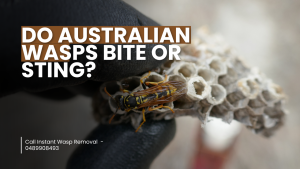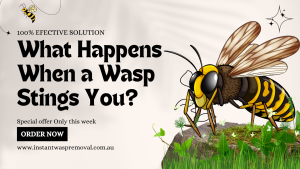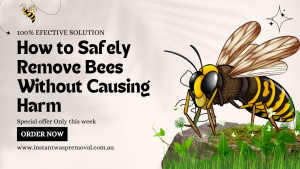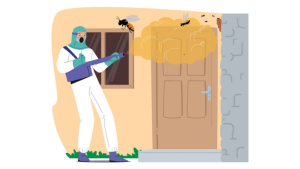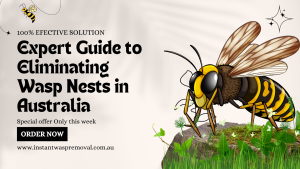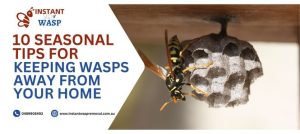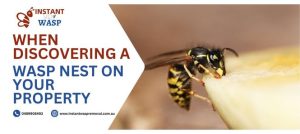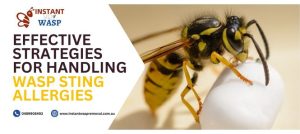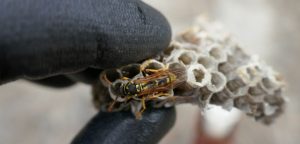Introduction to the Importance of Bees
Bees are essential for maintaining the ecosystem’s balance and ensuring the planet’s sustainability. Their vital role in pollination is crucial for our well-being. For services like wasp removal in Noble Park, understanding the importance of related pollinators like bees enhances our approach to ecosystem management.
The Pollination Process
As bees visit flowers in search of nectar, they transfer pollen grains to other plants. This process, known as pollination, helps in the growth of plants and trees on our planet. Plants can procreate thanks to this mechanism. Humans and other living things on our planet cannot survive without the pollination that bees perform on fruits, vegetables, and nuts.
Bees and Biodiversity
Additionally, by promoting the establishment of numerous plant species, bees contribute to biodiversity development. Bees have a pivotal role in environmental sustainability by pollinating plants. The pollination function of bees helps birds and mammals survive as they sustain themselves on the fruits produced by these plants.
Bees as Indicators of Environmental Health
Furthermore, bees serve as environmental health markers that act as a gauge for the general health of the planet. Because of this, bee protection involves more than just keeping their species alive, as bees help in not only preserving the environment but also in sustaining life on the planet itself.
An Introduction to Bees
Bees are a type of flying insect that is part of the same group as wasps and ants. They are well-known for playing a vital role in the process of pollination, which involves the movement of pollen grains from a flower’s male to female reproductive organs in order to facilitate fertilization and seed formation.
Importance of Bees in Pollination
Bees are vital pollinators for a wide range of plants, including numerous crops that are necessary for producing food for humans. Although there are thousands of different species of bees, the honeybee, bumblebee, and solitary bee are the most well-known. The social insects known as honeybees reside in colonies made up of worker bees, drones, and a queen. Their main source of food is the honey they make. Despite having smaller colonies, bumblebees are equally notable for their unique fuzzy appearance. As their name implies, solitary bees don’t establish colonies; rather, they live alone. They comprise the bulk of species of bees.
Conservation Concerns
Despite their importance to ecosystems and agriculture, the bee population is declining in number. Many factors, such as habitat loss, pesticide use, and climate change, have contributed to this decline. Concerns have been expressed regarding possible effects on biodiversity and the food supply. Therefore, efforts to preserve and safeguard bee populations are critical to the sustainability of agriculture and the environment.
Common Bee Species Found in Australia
Australia is home to an estimated 1,600 native bee species, showcasing a diverse range of bee types. Below are some of the common bee species found across the continent:
- European Honeybee: Despite not being native to Australia, European honeybees have been introduced and are now prevalent. They play a crucial role in pollinating crops and are also important for commercial honey production.
- Blue-Banded Bee: Identifiable by the blue bands across their abdomens, blue-banded bees are common in both natural settings and urban gardens, where they serve as effective pollinators.
- Teddy Bear Bee: Named for their fluffy, teddy bear-like appearance, Teddy Bear Bees are often found in gardens and woodlands. They are important pollinators for crops like tomatoes.
- Leafcutter Bee: Leafcutter bees are named for their unique behavior of cutting leaves into circles to build their nests. These solitary bees are crucial in pollinating a variety of native plants.
- Reed Bee: Reed bees are small, solitary insects that typically nest in wood cavities or hollow plant stems. They are vital pollinators for many different native plants.
- Carpenter Bee: Carpenter bees are large and known for their habit of boring into wood to make their nests. While they can damage wooden structures, they are significant pollinators for a variety of native flora.
- Blue-Banded Cuckoo Bee: The blue-banded cuckoo bee is a brood parasite, laying its eggs in the nests of other bee species. With their vivid colors and behaviors, they are often mistaken for wasps.
The Role of Bees in Sustaining our Ecosystem
Importance of Bees as Pollinators
Primarily as pollinators, bees are essential to the sustainability and well-being of the environment. The following is how they help:
Pollination: Among nature’s most efficient pollinators are bees. They help flowering plants reproduce by spreading pollen from one bloom to another. The production of fruits, vegetables, nuts, and seeds depends on this process. A lot of products, like coffee, berries, apples, almonds, and apples, rely largely on bee pollination to produce good harvests.
Contribution to Biodiversity
Biodiversity: By pollinating a wide range of plants, which in turn support a variety of habitats, bees contribute to biodiversity. A wide variety of plant species are necessary for healthy ecosystems, and bees contribute to this diversity.
Supporting Ecosystem Stability
Ecosystem Stability: Bees’ pollination activities contribute to ecosystems’ continued stability. Fruits and seeds produced by successfully pollinating plants are essential food sources for other species, such as birds and mammals. Bees therefore contribute to the food web in an indirect way.
Economic Impact of Bees
Economic Value: The pollination services that bees provide have a major positive economic impact. The world economy receives billions of dollars annually from the agricultural sector, which depends on bees to pollinate a wide variety of crops. Many crops would not be able to be produced without bees, which would result in lower yields and higher prices for customers.
Bees and Habitat Formation
Bees are involved in the process of establishing habitats for other organisms. They aid in the growth of vegetation, which offers food and shelter to a variety of animals, insects, and microorganisms, by pollinating plants.
Bees as Environmental Health Indicators
Environmental Health Indicators: Bee populations are useful environmental health indicators. Their decrease or extinction may indicate the presence of dangerous pesticides, pollution, habitat loss, or environmental deterioration. Monitoring bee populations can provide crucial insights into the overall health of ecosystems.
Bees and Carbon Isolation
Carbon Isolation: Bees indirectly aid in carbon isolation by promoting plant growth, albeit indirectly, compared to their involvement in pollination. Healthy ecosystems with a variety of plant life may absorb and store more carbon dioxide from the atmosphere, thereby slowing down climate change.
In general, bees are vital to food production, biodiversity preservation, and the balance and health of ecosystems. Sustainability and the health of the ecosystem depend on the preservation of bee populations and their habitats.
Key Takeaways
Bees produce a large portion of the world’s food supply and are essential to the pollination of a wide variety of crops and wild plants. This process ensures the survival of ecosystems. Their support of food security, biodiversity, and ecosystem resilience is priceless. Bees also function as environmental health indicators, revealing the condition of ecosystems and the effects of human activities like pesticide use and habitat degradation. It is not only essential for bees to survive but also for the health of entire ecosystems and human cultures to protect bees and their habitats. Thus, for the long-term health and sustainability of our planet, coordinated measures to maintain bee populations and promote sustainable beekeeping methods are essential.


